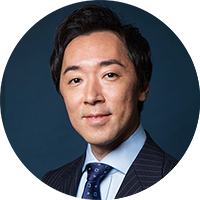Coach's VIEW is a business column authored by executive coaches in COACH A, aimed at providing valuable insights and effective approaches for leveraging coaching to foster organizational and leadership development. The column draws on the latest coaching trends and data, as well as insights from notable global publications on coaching.
Are You Allowing Yourself To Fail?

We often hear from our clients that not trying new things means that a company is no longer stagnant, but in decline. In addition, many managers are concerned that their employees do not take action or challenge themselves on the things that they have not done before. We have the new challenge in our head but we don't have new behaviors carried out as expected.
What is a “Challenge”?
I am currently working together with clients on a project with the theme of “challenges.” In this project, the head of each organization coaches his or her staff members to transform the organization so that many new challenges are created by each employee in the workplace.
In an effort to gain a better understanding of the theme of "challenge," I talked to the coaches who are working on this project about the "challenge" for them. I realized that there was a lot of talk about the definition of the word "challenge" and the challenges for the client, but when it came to "the challenges for me," there were not many opinions. When I think about my own challenges, I myself feel a slight sense of stopping thinking.
According to the dictionary, “challenge” has the following meanings:
- To engage in a fight or competition
- To attempt something difficult or new
Rethinking the matter, I realized that this word connoted the impression that I had to be prepared for something special. What happens inside our heads when we are faced with the word “challenge”?
Self-regulating Brakes Created by Thinking
Isaac Lidsky, author of “Eyes Wide Open,” said in a TED talk that people tend to make the following assumptions when faced with the unknown.
- Bringing in preconceived notions
- Speculating and leaping theories
- Seeking unattainable perfection
- Thinking you're right and the other person is wrong
- Having fear the worst.
- Deciding what you can do and what you can't do
Lidsky explains that when we think about something we've never experienced before, we create impossible fictions in our mind and unconsciously subject ourselves to anxiety and fear. In order to avoid this anxiety, we create our own limits and choose the one that they can handle with certainty. In other words, we are unknowingly putting on the brakes of "self-regulation".
What is the Perspective of a “Challenger”?
What kind of mindset do people who take on challenges have?
As a student living in the United States, I reflexively thought of Hideo Nomo and Ichiro when I thought of a challenger. I was always encouraged by the way these two men came to the major leagues as challengers. Ichiro, in his 84-minute retirement conference, was asked, "Have you ever been successful? He answered, “I don’t really know if I succeeded or not,” and talked about his challenge to become a major league baseball player from his unique perspective.
"I think it takes a lot of courage to challenge the major leagues, but I would describe it as a success, but if you want to do it because you think it's going to be a success, and you don't go because you don't think you can do it, you will regret it. If you want to do it, go for it. I have no regrets, no matter what the outcome is at the time. Basically, it's better to go for what you want to do.”
He took the challenge because he wanted to do it. He didn't seem to put on the brakes of self-regulation by thinking, "Can I succeed by doing it?” I feel the same way about Shohei Ohtani, who crossed the ocean by saying, "I want to be good at baseball.”
How to Avoid Self-Regulation
“I want to try it, so I'm going to try it.”
This seems to be the shortest route to the challenge, but what can we, as being a non professional athletes, do to keep the brakes off of self-regulation? For example, let's say you're in a meeting and you have an opinion that clearly differs from your boss and the other participants. It's also a bit of a challenge to voice that, if it's something you don't usually do.
“What would happen if I told you this?”
When these thoughts start in your head, you usually find yourself putting on the brakes of self-regulation and losing the opportunity to speak out. When anxiety about the unknown begins, in fact, many challenges are over before they even begin. When I start "thinking about the unknown," I try to think, "It's time to take the fight to it. The other person is yourself.
And the way to challenge the fight is the "give yourself permission to fail" approach. When we are conscious of things like "winning" or "meeting someone's expectations," we tend to fear "losing" or "failing to meet expectations" because we see it as a failure.
When I was in my previous job, one of my superior once told me, "You should not only succeed, but you should also have setbacks.” The organization, led by that superior, had done a number of unprecedented things to help turn the business around. This one word from him gave me the nudge to give myself permission to fail.
It opened my perspective that there are things I can learn from my failures, that there are successes that build on the failures, and it helped me to release my brakes. For projects with a "challenge," it was suggested that "number of failures" should be added to the project's success metrics. He says that we should not only look at successes, but also at the failures that accumulate behind them.
This perspective can also help loosen the brakes that organizational members are putting on themselves. How well are you letting the brakes off for yourself and your team members?
[References]
Isaac Lidsky
“What reality are you creating for yourself?”
Tina Seelig “What I Wish I Knew When I Was 20: A Crash Course on Making Your Place in the World” (HarperCollins)
Scilla Elworthy “Pioneering the Possible: Awakened Leadership for a World That Works” (North Atlantic Books)
W. Timothy Gallwey “The Inner Game of Golf: Revised Edition” (Random House)
Robert Kegan & Lisa Laskow Lahey “Immunity to Change: How to Overcome it and Unlock the Potential in Yourself and Your Organization” (Harvard Business Review Press)
*Regardless of profit, non-profit or intranet, secondary use such as copying, diversion, selling etc. is prohibited without permission.
Language: Japanese

